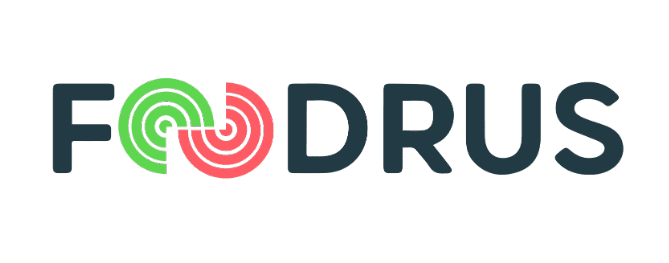News
FOODRUS
 The FOODRUS project – an innovative collaborative circular food system to reduce food waste and losses in the agri-food chain – aims to develop and implement a circular food approach through a collaborative network based on the use of the ICT technologies to reduce food losses and waste along the agri-food value chain.
The FOODRUS project – an innovative collaborative circular food system to reduce food waste and losses in the agri-food chain – aims to develop and implement a circular food approach through a collaborative network based on the use of the ICT technologies to reduce food losses and waste along the agri-food value chain.
Project co-funded by the European Commission under the Horizon 2020 programme, 2020 - 2024
Highlights
The partners of the FOODRUS and CO-FRESH projects held their final events in Brussels this week, exploring and discussing their results, innovative solutions, and collaborative efforts that will shape the future of food systems. The Final Conference was livestreamed on the FOODRUS YouTube Channel and can be watched back here. All the slides from the event will be made available on the project website.
{slider THE PROJECT}
FOODRUS strategy has been built on the basis of the three fundamental pillars of food sovereignty (Democracy, Health & Culture and Empowerment) to undertake Food Waste Prevention challenge being Circular Economy a mandatory model from which to generate, implement and replicate subsequent solutions of any type, in different value chains and at different scales. The reasoned application of these basic principles where FoodRUs strategy is applied, will assure resilient and sustainable local and regional Bioecosystems thanks to a multi-actor and multidisciplinary approach.
FOODRUS will deploy 23 technological, social, financial, ethical, educational, political, labelling and organizational innovative solutions involving the mobilization and active participation of more than 40 actors to overcome the specific challenges of the selected Value Chains and follower regions consisting on: experts on agro-industry, LCA , social innovation and economy, sensitisation , culinary arts, nutrition, labelling, fiscality and ICT tools; municipalities; policy makers; ethical finance organizations, stakeholders of the entire food value chains (producers, farmers, retailers, packaging and logistics services, HORECA, consumers associations and communities); waste managers; entrepreneurs; ONGs; Food Banks; social kitchens; educational centres and civil associations. FoodRUs will screen 3 value chains focused in 3 specific types of food in Europe:
- Cross-regional Spanish pilot focused on vegetables and IV range salads
- Danish pilot analysing the value chain for meat and fish
- Slovak pilot analysing the bread value chain
{slider ACTIVITIES}
ACR+ will define a strategy to engage with Follower Regions that will replicate some features and outputs of the project. Six follower regions are already included in the project 5 as partner and 1 as support letter. In order to ensure the effective engagement of local stakeholders, two types of replication events will be implemented. The objective is to engage regional stakeholders to propose and discuss local solutions, and to co-construct a roadmap for the implementation of the FoodRUs approaches and solutions in the medium-term after the end of the project.
ACR+ will set up, manage and convene the Advisory Board and Policy Board, drawn from relevant organisations active /expert in the agri-food value chain interested in the project, with the aim of providing feedback on the project main features and recommendations.
ACR+ will gather information from all consortium partners and other experts to develop a set of policy recommendations addressing EU/national levels. ACR+ will capitalise on exchanges with follower regions to highlight the current legal and economic barriers preventing local and regional stakeholders from improving or implementing innovative solutions regarding food waste, as well as how policy change could help address them.
{slider PARTNERS INVOLVED}
FOODRUS´ project leader is UD*, Universidad de la Iglesia de Deusto Entidad Religiosa (ES) and its project partners are:
- ACR+, Association of Cities and Regions for sustainable Resource management (BE)
- GEO, Geonardo Environmental Technologiesltd (HU)
- ENG, Engineering - ingegneria informatica SPA (IT)
- AIN, Asociacion de la Industria Navarra (ES)
- AU, Aarhus Universitet (DK)
- FEBEA, Federation Europeenne de Finances et Banques Ethiques et Alternatives (BE)
- BCC, Basque Culinary Center Fundazioa (ES)
- G!E, Greenovate Europe (BE)
- HAZI, Fundacion Hazi Fundazioa (ES)
- Florette, Florette Iberica SL (ES)
- EROSKI, EROSKI Scoop (ES)
- CORREOS, Sociedad Estatal Correos y Telegrafos SA SME (ES)
- Zamudio, Ayuntamiento de Zamudio (NL)
- ELIKA, Elika Nekazaritzako Elikagaien Segurtasunarako Euskal Fundazioa (ES)
- EDER, Consorcio para las Estrategias de Desarrollo de la Ribera de Navarra (ES)
- Jespers,Jespers Torvekokken APS (DK)
- FRISKE FISK, FRISKE FISK A/S (DK)
- ÖX, OXNEHOLM A/S (DK)
- Hørkram, Horkram Foodservice A/S (DK)
- SUA, Slovenska Polnohospodarska Univerzita V Nitre (SK)
- NEDU, NEW EDU NO (SK)
- TBS, TBS AS (SK)
- Free Food, Free Food Jedlo Pre Vsetkych (SK)
- ADRVEST, Regional Development Agency of the West Region Romania (RO)
- PCCI, Plovdiv Chamber of Commerce and Industry (BG)
- TMG, Business Upper Austria - oo Wirtschaftsagentur Gmbh (AT)
- NFCSO, Nemzeti Elelmiszerlancbiztonsagi Hivatal (HU)
- HALANDRI, Dimos Chalandriou (GR)
* ACR+ member
{/sliders}
More information:












